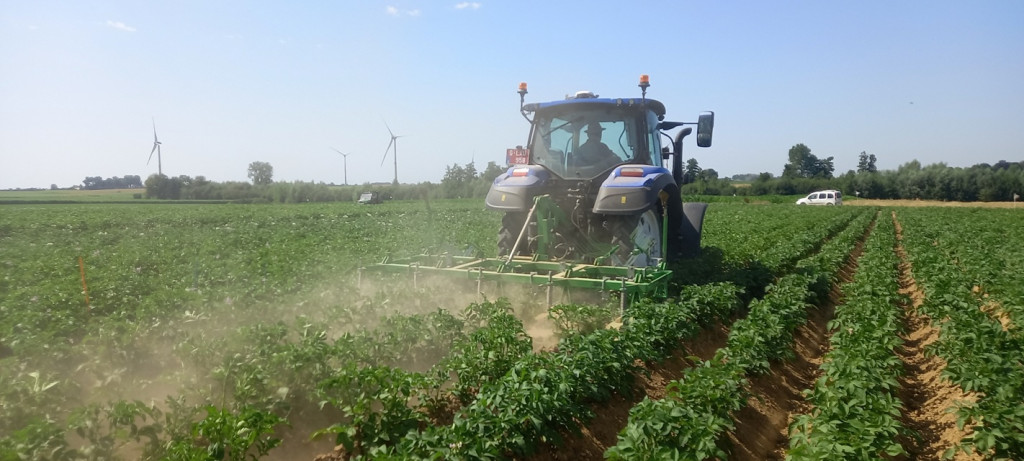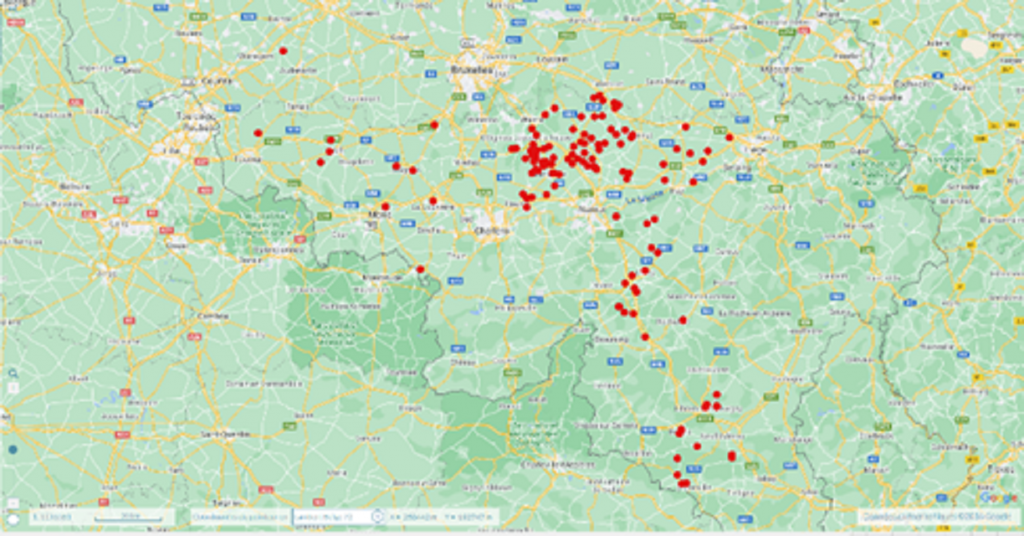Potato virus Y is transmitted by winged aphids. When visiting the crops, they carry out so-called "test" probes to find out whether or not the potato is suitable for their diet. Whilst taking a test probe, the aphid absorbs a very small quantity of cell sap, along with viral particles if these are present in the cells probed. Absorbed viral particles can immediately be transmitted to another plant by the same process. These processes of acquisition and transmission of viral particles take place rapidly and repeatedly, making it difficult to control the spread of virus Y in the field. The virus takes advantage of processes occurring within the plant cell to multiply and circulate inside the plant, thus causing dysfunctions that can significantly affect the yield and quality of the tubers. When contaminated tubers are replanted, they will produce plants with weakened potential, which can in turn serve as a source of contamination. Depending on the strain of virus Y, the extent of the infection in the plot, the sensitivity of the plant, or even the climatic conditions in which it is growing, losses in yield can be as high as several dozen percent. Moreover, there is one specific virus Y strain that causes necrosis on the tubers, making marketing impossible.
The CRA-W potato unit has been monitoring this problem for many years, and various investigations into the matter have led to a full understanding of its significance and the development of potential solutions for seed potato producers.
The CRA-W participates in the official programme for the testing and certification of seed potatoes, which includes laboratory analysis of all seed potatoes produced in Belgium, and therefore has a global perspective of the situation. Depending on the year, 30 to 80% of the seed lots tested have the virus Y infection, which is responsible for 95 to 98% of the downgrading or rejection of batches after analysis. It therefore presents a genuine problem in potato growing and, under these conditions, it can be said that it would be virtually impossible to produce potatoes for consumption without this programme of control and certification, which maintains the effects of the virus at an acceptable level.
There is a proven relationship between winged aphid activity during the growing season and plant quality. To help plant producers, we have therefore developed a system for tracking this activity that involves the trapping of aphids in suction traps, of which there are only two functioning in Belgium (at Libramont and Gembloux). The data obtained are sent to the seed growers every day during the season.
Epidemiological studies have clearly shown that the sources of contamination that are inside the production plots are the main source of virus spreading. In practice, this means that seed growers must exercise caution when selecting the seed lots they intend to propagate.
Various crop protection strategies have been studied. These studies show that, paradoxically, insecticides are not very useful in limiting the spread of virus Y in propagation plots, unlike paraffinic mineral oils.
Other products have been trialled unsuccessfully, or found to be less effective: notably vegetable oils and plant macerates. Some agronomic practices have proved valid, such as foliage dessication of the propagation crops as early as possible or ground straw mulching to disorientate the aphids when they are searching for their plant substrate.
The use of appropriate genetic resources in breeding programmes, i.e. those derived from varieties with resistance genes, is an effective solution.
For example, use of the Gasore variety endowed with a virus Y resistance gene (Rysto) in our breeding programme has led to the development of a variety, Louisa, which is totally resistant to the virus.











